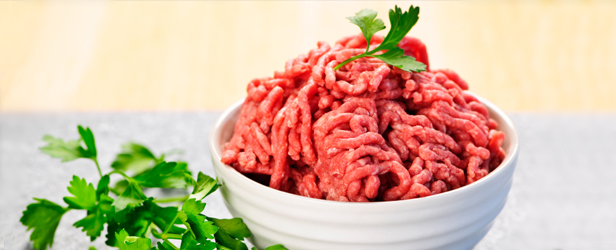
Authors Stephan van Vliet, Nicholas Burdand and Luc Loon from the University of Illinois at Urbana-Champaign and Maastricht University (Netherlands) published an article appearing in American Society for Nutrition concerning animal protein vs. plant protein.
Many of us probably have the intuition to grab a steak or whey shake after a workout rather than a soy or wheat protein source. Lately, there has been more of a push toward plant based protein and these authors provide reasons why we may want to disregard this trend.
“Clinical and Consumer market interest is increasingly directed toward use of plant-based proteins as dietary components aimed at preserving or increasing skeletal muscle mass (Vliet, Burdand, Loon).”
Yet, “few studies have assessed the impact of plant-based protein ingestion on the postprandial muscle protein synthesis (MPS) response (Vliet, Burdand, Loon).” For those that have assessed this, muscle protein synthesis is not getting anywhere close to isonitrogenous amounts of skimmed milk, whey or beef concerning both resting and post exercise conditions.
According to the authors and recent evidence, there is indeed a superior activation of muscle protein synthesis after ingestion of animal proteins (whey, egg, beef) compared to plant proteins (soy and wheat). Below are some potential explanations for this observation.
Protein Quality
“Dietary protein quality may refer to the ability of a protein source to support the increase in MPS after ingestion (Vliet, Burdand, Loon).”
Protein quality can be explained by three factors: dietary protein digestion, amino acid absorption kinetics and amino acid composition (especially leucine).
Protein Digestibility
“The digestibility of the protein source has been defined as the proportion of dietary protein-derived AAs that is effectively digested and absorbed, thus becoming available in a form suitable for body protein synthesis (Vliet, Burdand, Loon).”
The authors explain that plant based protein (45%-80%) generally shows a lower digestibility compared to animal protein (>90%). Plant proteins also face another problem; amino acids derived from soy and wheat easily convert to urea compared to amino acids derived from milk. The reason for this is not fully understood, but is hypothesized to be a result of a relative lack in essential amino acids within the plant sources. For one reason or another, plant derived amino acids are getting sent to the liver, building up in concentration, and serving as a stimulus for ureagenesis. Unfortunately, those AAs are not getting anywhere near muscle mass. All in all, the authors speculate essential amino acid composition of a protein source can allow predictions to be made concerning muscle anabolism.
Amino Acid Absorption Kinetics
For both financial and methodical reasons, quantitative data is lacking in regards to amino acid absorption kinetics and digestibility of plant protein.
“However, the sparse data available suggests that the reduced ability of soy protein to support MPS as opposed to whey, milk and beef may in part be attributed to differences in digestion and absorption kinetics (Vliet, Burdand, Loon).”
Amino Acid Composition
Plant based proteins are low in methionine and or lysine when compared to animal protein. Leucine is especially of great importance. Spikes in leucine both inside and or outside muscle cells is thought to be a driving force for MPS. In this regard, whey beats soy, and soy beats casein.
The amino acid content of whey (13.6%) is the highest known, which the authors explain may be why whey is best at stimulating MPS. Most plant based protein sources have a leucine range of 6%-8%, whereas animal sources have a range of 8.5%-9% (>10% for dairy). The authors speculate that leucine content of protein sources may be a key factor in explaining why animal proteins do a better job stimulating MPS than plant proteins.
Source
Dan Manson is a dual degree student at The Ohio State University and an ACE certified personal trainer. He has completed his biochemistry degree and is finishing his second degree in human nutrition/dietetics. Prior to his experience at OSU, Dan successfully completed three quarters of the Doctor of Physical Therapy (DPT) program at Ohio University. He made the change in career paths based on his very strong interest in the sciences, and the impact he strives to make on others in the area of nutrition. Special hobbies and interests include: diabetes, cancer, metabolism, nutrition, coffee, tea, wine, exercise training physiology.









I think most vegan athletes avoid soy as much as possible due to the estrogen-building properties; I know I do. Plant proteins can come from nuts, peas, rice, hemp and chia as well. And like a lot of omnivores do, we can take BCAA's to supplement our food sources.
This is all done without the high fat and cholesterol content of animal products, with the growth hormones that are put in our food and without the torture and murder of billions of animals.
I disgree with your assertion, but this is a well written piece.